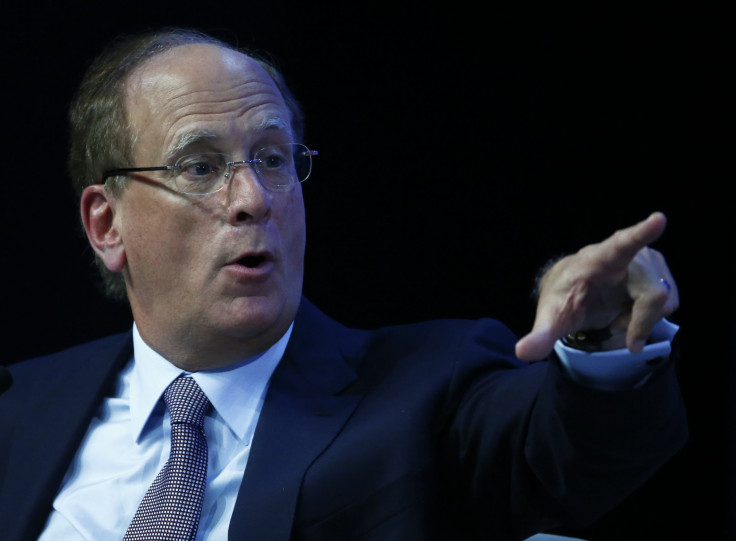BlackRock CEO Laurence Fink To Corporate Execs: Stop Dancing To Wall Street's Tune

One of the country’s highest-profile money managers is betraying his peers by asking corporate America to stop rewarding shareholders like him. Laurence Fink, CEO of asset management firm BlackRock, which holds some $4 trillion in investments, sent a letter to Fortune 500 CEOs Tuesday reiterating his belief that Wall Street’s demands on corporate cash holdings hurt long-term economic growth.
Ordinarily, it’s mega investors like Fink who push companies to increase dividends and repurchase shares. Usual suspects include hedge fund heavies like Carl Icahn, who incessantly prods Apple to bulk up its massive shareholder rewards program, or investor activists like Harry Wilson, who led a successful campaign to have General Motors buy back $5 billion of its own stock.
But Fink, who co-founded BlackRock in 1988, isn’t your average investor. These shareholder rewards, he says, smack of “short-termism.” The sway activist investors hold over corporate cash flow is “troubling both to those seeking to save for long-term goals such as retirement and for our broader economy,” he writes, as the New York Times reported.
Since the financial crisis, U.S. companies have pumped more than $2 trillion into stock buybacks. Investors adore buybacks because they concentrate stock ownership in fewer hands. They also increase companies’ earnings per share, an important yardstick for Wall Street -- and for executive bonuses.
Fink has a somewhat dimmer view of shareholder rewards. Buyback and dividend programs come at the expense of funding “innovation, skilled work forces or essential capital expenditures necessary to sustain long-term growth,” Fink writes in his letter.
Though his message is unorthodox in the financial world, it’s gaining traction. Market watchers have puzzled over the fact that while the Standard & Poor's 500 has surged every year since the depths of the recession, middle-class wages have remained stagnant and broader economic health is still uncertain.
Some have wondered whether investors’ demands on the country’s foremost innovators and employers help explain the paradox. Fink recently joined a group of executives, including McKinsey’s Dominic Barton and Barclays’ David Walker, called Focusing Capital on the Long Term. The group hopes to convince fellow investors to set their sights on the horizon, rather than the quarterly bottom line.
Though this is Fink’s second letter in as many years, Fortune 500 CEOs aren’t likely to receive it warmly. Last year, Fink reported that executives whose cash flow decisions he questioned gave him “some really angry phone calls."
© Copyright IBTimes 2025. All rights reserved.






















